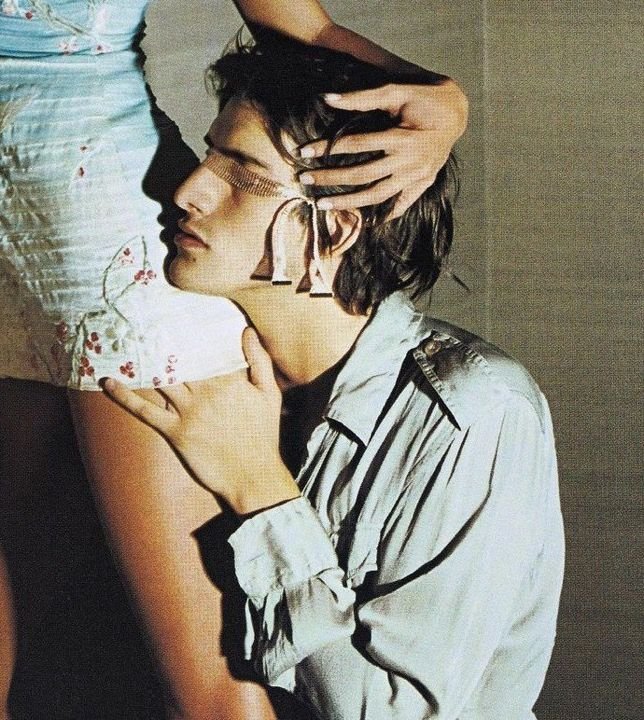Libido, often referred to as sexual drive, is one of the most intriguing and
misunderstood aspects of human behavior. While society tends to box it into “high” or
“low,” the truth is, libido is fluid, shaped by biology, psychology, relationships, health,
and even day-to-day life choices . So, where do you fall on this spectrum? And what does it mean for your relationships, self-esteem, and well-being?
Let’s take a deep dive into the fascinating world of libido what it is, how it works, and
how to navigate it at every level.

What Exactly Is Libido (And Why Does It Matter)?
The term “libido” dates back to Freud, who called it the energy of the sexual instinct.
But today, the meaning has evolved. According to biological anthropologist Dr. Helen
Fisher, libido is more than sex, it’s tied to motivation, energy, and emotional
connection.
Libido is shaped by:
• Hormones like testosterone and estrogen
• Brain chemistry
• Mental health
• Relationships and emotional intimacy
• Cultural and personal beliefs
• Physical lifestyle (sleep, nutrition, stress)
Understanding your libido where you are and why can improve both self-awareness
and relationship satisfaction.
High Libido: The Ever-Burning Fire

If you find yourself frequently thinking about sex, feeling easily aroused, or craving intimacy often, you may fall under the high libido category.
Common Signs:
• Frequent sexual thoughts or fantasies
• Quick arousal
• High sexual satisfaction
• Strong physical attraction to others
What Fuels It?
• Hormones: Elevated testosterone levels
• Genetics: Some are biologically wired with a stronger drive
• Emotional & Physical Health: Exercise, self-esteem, and healthy habits
• Passionate Relationships: Romantic or new emotional connections
Challenges to Watch For:
• Mismatched desire with your partner
• Potential for compulsive or unhealthy sexual behavior
• Frustration if needs aren’t met
Balance Tips:
• Practice mindfulness and stress management
• Communicate openly with your partner
• Channel sexual energy into creativity or exercise
Moderate Libido: The Sweet Spot of Desire
For many people, libido isn’t extreme, it’s steady and balanced. Sex is enjoyable, but
not consuming, and emotional connection often plays a big role.
Common Signs:
• Interest in sex, but not a frequent preoccupation
• Regular intimacy without pressure
• Desire is often linked to mood and connection
• Fulfillment in both sexual and non-sexual intimacy
Factors That Support a Balanced Libido:
• Healthy relationships and emotional safety
• Physical well-being through diet, sleep, and activity
• Stable mental health and low stress
• Open communication with a partner
Tips to Maintain It:
• Keep emotional intimacy strong (cuddling, quality time)
• Practice self-care and stress management
• Stay sexually curious and connected with your partner

Low Libido: When the Flame Fades
If you rarely think about sex or feel disinterested in intimacy, you might be experiencing
low libido. And guess what? That’s completely normal for many people, temporarily
or long-term.
Common Signs:
• Low or no interest in sex
• Difficulty becoming aroused
• Feeling disconnected from intimacy
• Confusion, guilt, or frustration about lack of desire
Why It Happens:
• Hormonal changes (low testosterone, menopause)
• Mental health issues like anxiety or depression
• Chronic illnesses or medications (e.g. antidepressants)
• Relationship issues or unresolved conflict
How to Rekindle Desire:
• Seek medical or mental health support if needed
• Reduce stress with yoga, therapy, or journaling
• Explore non-sexual touch and emotional closeness
• Focus on self-compassion not shame
The Fluid Nature of Libido
 One of the biggest myths? That libido stays the same throughout your life. In truth, it fluctuates constantly, based on your environment, body, mind, and relationships.
One of the biggest myths? That libido stays the same throughout your life. In truth, it fluctuates constantly, based on your environment, body, mind, and relationships.
Common Libido Shifts:
• Stressful life periods (work, parenting, finances)
• Pregnancy or postpartum hormone changes
• Menopause or aging
• New relationships or emotional awakenings
• Lifestyle habits like diet, alcohol, and exercise
Reminder:
“There is no right amount of desire only the amount that feels right for you.” Dr. Emily Nagoski, author of Come As You Are. Whether your libido is high, moderate, or low, it’s not about “fixing” it’s about understanding it.
Let’s Talk About It
• Have you noticed changes in your libido over time?
• Do you and your partner experience mismatched desire?
• What tools have helped you understand or embrace your sexuality?
Libido isn’t a one-size-fits-all metric. It’s deeply personal and constantly evolving. By
exploring your own sexual energy without shame or pressure, you can cultivate a more
fulfilling, healthy, and honest relationship with both yourself and others.



